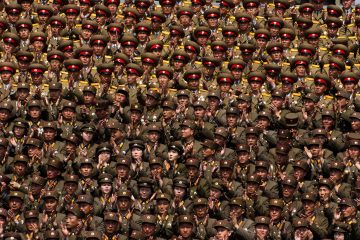
OxPol Blogcast. Nuclear Security with Edward Howell
What does security mean to different people, in different places, under different circumstances? And what do academics view as the most pressing security issues for the future? In this bonus episode, Eden Raviv speaks to Dr. Edward Howell, Lecturer in Politics at Christ Church at the University of Oxford, to try to understand the concept. Dr. Howell’s research focuses on the politics and international relations of North Korea, the Korean Peninsula and East Asia. Join them as they discuss his latest book, North Korea and the Global Nuclear Order: When Bad Behaviour Pays (2023) and talk about North Korea, nuclear proliferation and bridging the divide between academia and policy. Listen on:










